The embodied kitchen
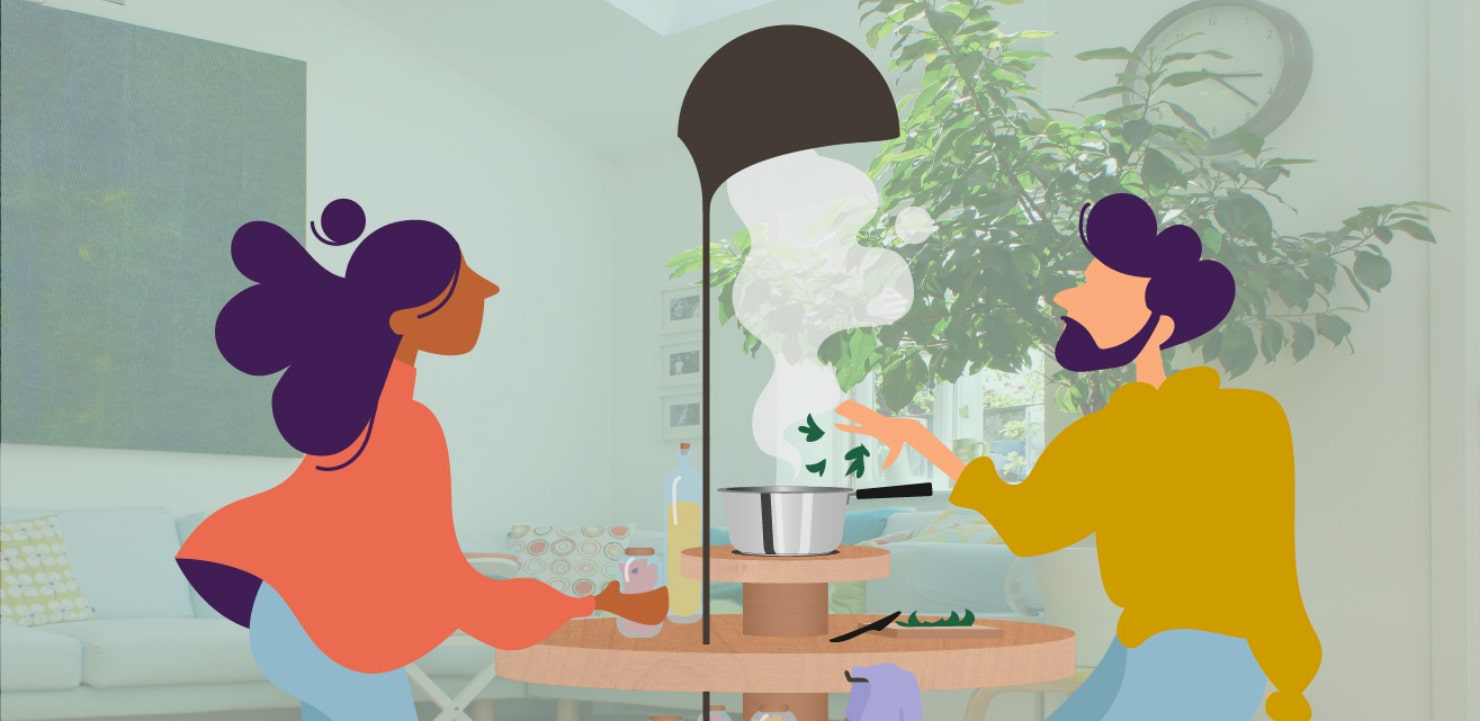
Context
February - May 2021
Master degree project
At Edinburgh College of Art, UK
My Role
Scenario building for crisis
Product Design
1 week raw cooking experimentation
Tools & Methods
Oxford Scenario Planning Approach
Deep problem framing
A kitchen
The Embodied Kitchen is a system of furniture, tools and space arrangement, that creates a multi-organism interconnected cooking. Promoting a holistic approach to food, being totally electricity-free and fermentation-friendly, it creates a multi-organism interconnected cooking, through human and non-human bodies.
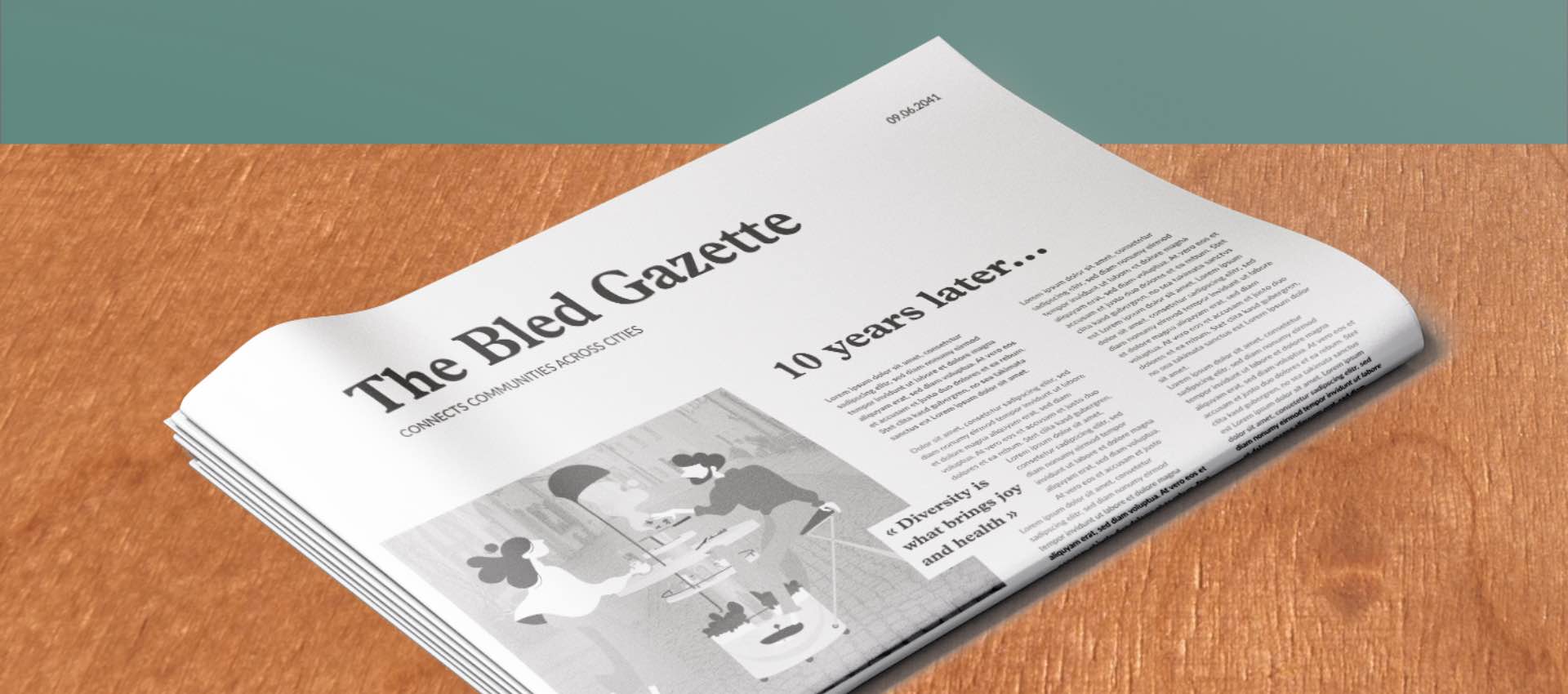
Context
While it is becoming more complex to solve more complex problems, the current society’s dependency on energy is growing, and the available energy per person decreases. Small-scale communities have the power to gain long-term energy resiliency in their everyday life, in order to mitigate a collapse of our complex society. The food sector is among the most energy-consuming sectors, with 36% of its energy consumption caused by the food retail, preparation, and cooking (FAO, 2011).
The scenario discussed below explores a potential future where resilient populations try to adopt more sustainable interactions with their food and their community.
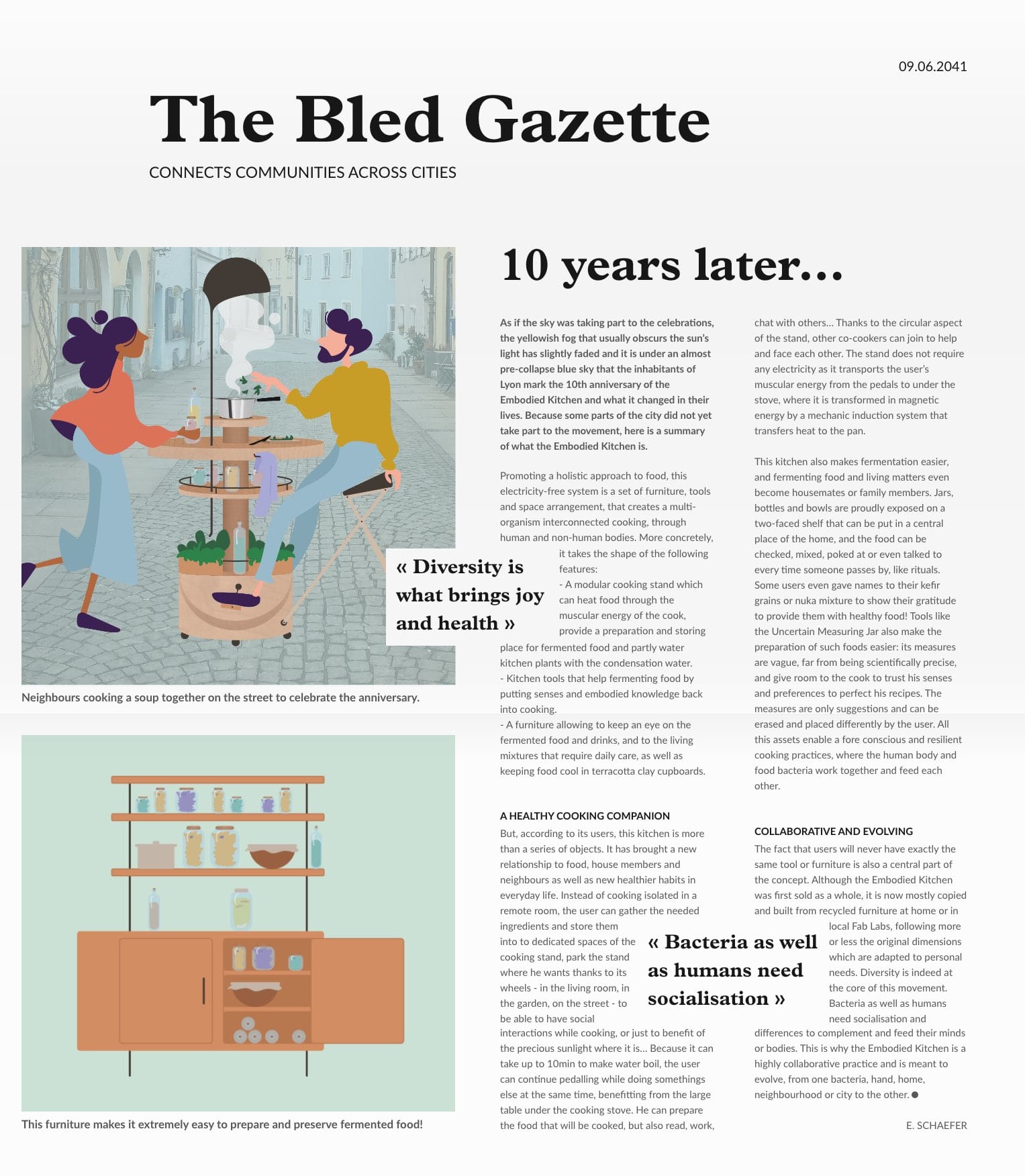
Research
This scenario is mainly based on the breaching experiment I went through for a week, during which I did not use any energy to heat or cook my food - and in the end, to prepare it as well - other than my body’s muscular and thermal energy.
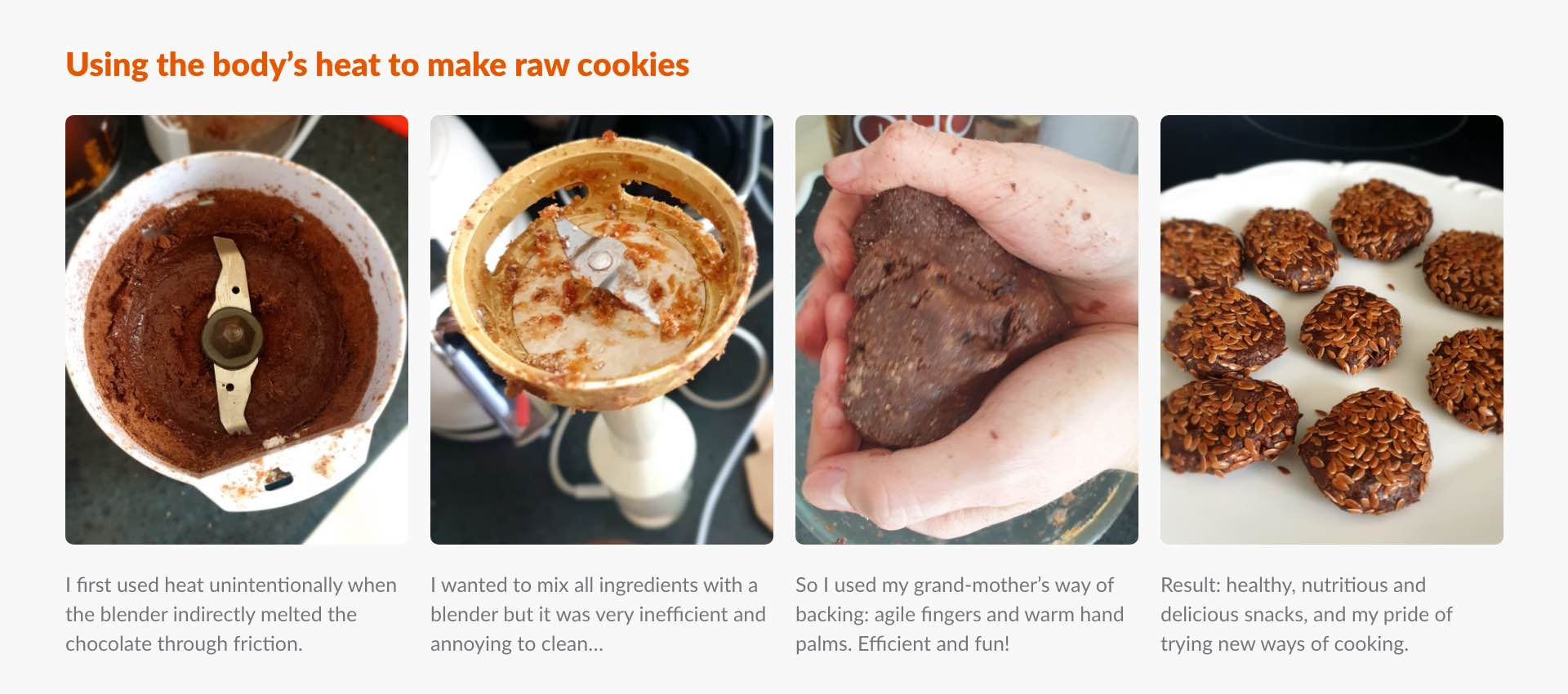
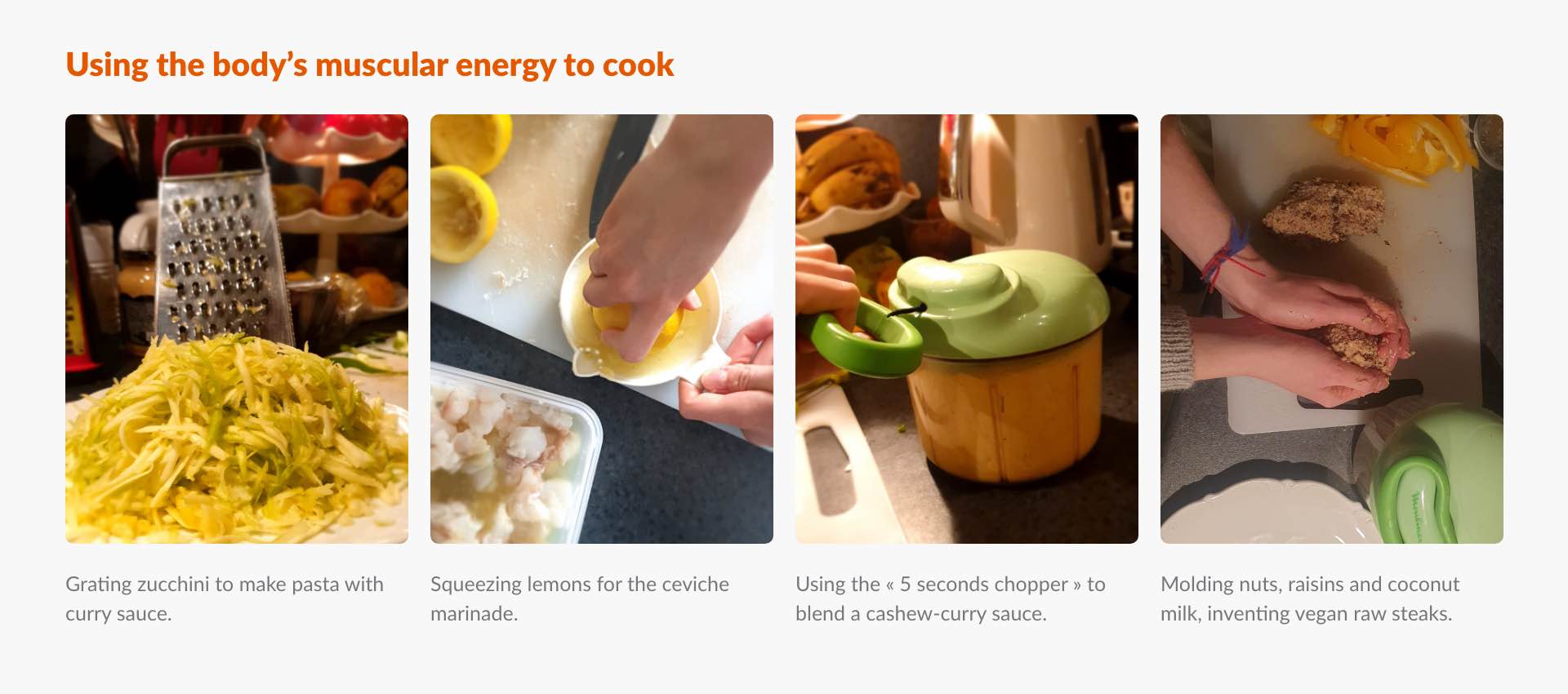
Insight 1: Preparing raw food can be quicker and healthier
- During this experiment, I observed that not having to spend time heating the food gave me more time and motivation to prepare it: cut, peal, blend, mix… Time being one of the obstacle faced when trying to eat more vegetables and fruits, this was for me a solution to eat healthier with the same time use. I also realised that heat was often used to accelerate processes that could otherwise happen with more time.
- Relating food to time, like the Slow Food movement also does, made me build a closer relationship to what I ate. Fermented food can sometimes need a long fermentation period (from 24 hours to over a month), but is extremely healthy, as it is based on bacteria creating probiotics, which help to balance the human digestive ecosystem, and therefore strengthen the immune system for example.
- Based on my experience of growing kefir in my fridge, feeding it with sugar, changing the water, and drinking the outcome of the bacteria’s work, I truly felt I was responsible of a pet, and that it was reciprocally offering me his healthy gift. This created a mutual and long-term relationship with my food. Doing so, I also tried to find more user-friendly and healthier interactions with bacteria while using tools.
Insight 2: Fermented food promote more-than-human food socialities
- Based on my experience of growing kefir in my fridge, feeding it with sugar, changing the water, and drinking the outcome of the bacteria’s work, I truly felt I was responsible of a pet, and that it was reciprocally offering me his healthy gift. This created a mutual and long-term relationship with my food. Doing so, I also tried to find more user-friendly and healthier interactions with bacteria while using tools.
- As women are doing 75% of the current unpaid care work (OECD, 2019), they carry many responsibilities for a sustainable food transition. Through the modularity of a kitchen that they can carry out of a static room, their work becomes visible and more recognised, and even encourages participation from others.
- Massaging sauerkraut or mixing nuka also links humans to their food physically, engaging their body into a foreign one, which they usually put into their own without much thoughts. This embodied experience develops empirical knowledge which allows also emotional and spiritual connections with the food, especially valuable for good bacteria, that usually lack of human trust (Food Feminism Fermentation, 2019).
- This system could also allow more community interactions through neighbourhood events, where people take their kitchens on the street and cook together, have fermented cocktails and even sing fermentation songs, that mark the tempo for sauerkraut massages. It is also said that bacteria ferment better when certain sound waves are captured by them, which can be special musics played for these events (Food Feminism Fermentation, 2019).
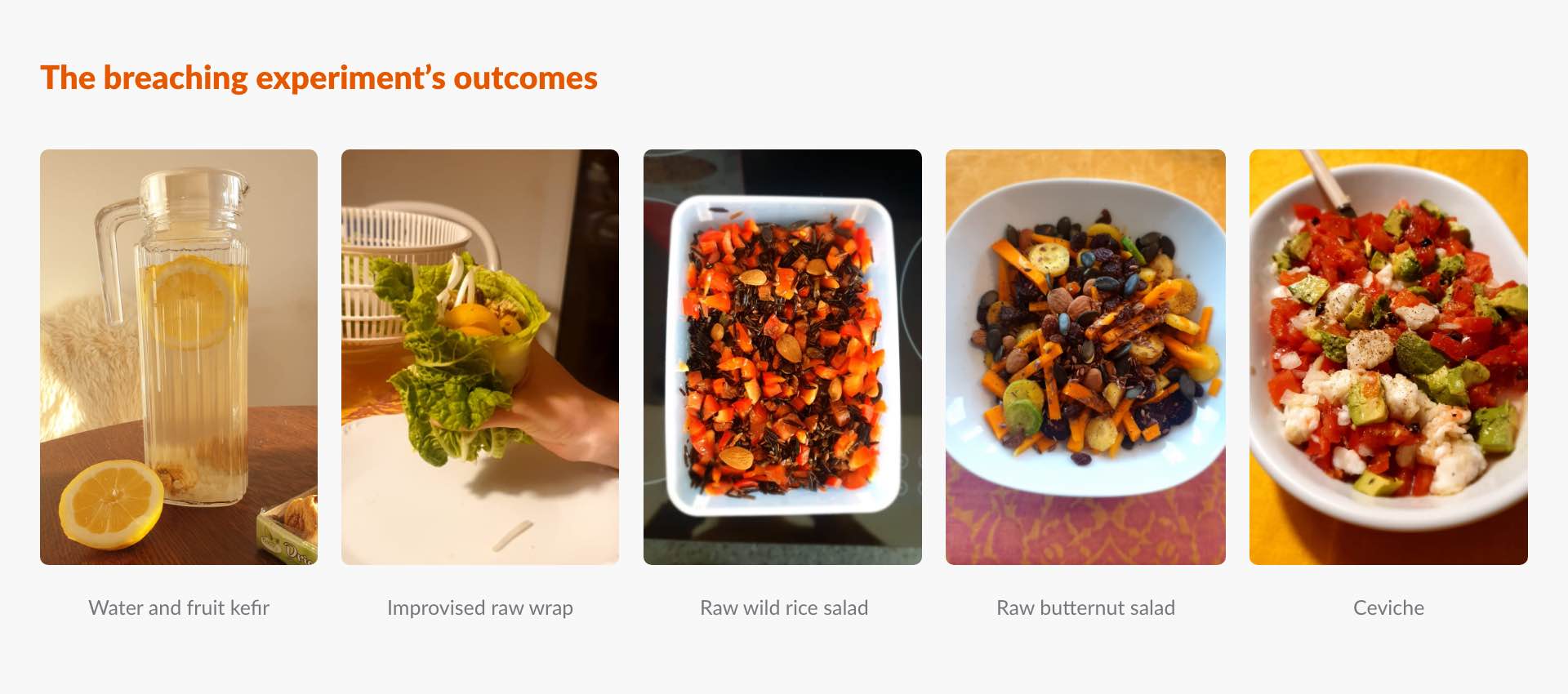
Conclusion
Trying to plan a scenario has been challenging as it is easy to shift from an analytical point of view to a subjective one when it comes to describing a future. But it also shows how much it is already possible to prevent the more pragmatic scenario if it is accepted now, and if the needed interventions are already being designed.